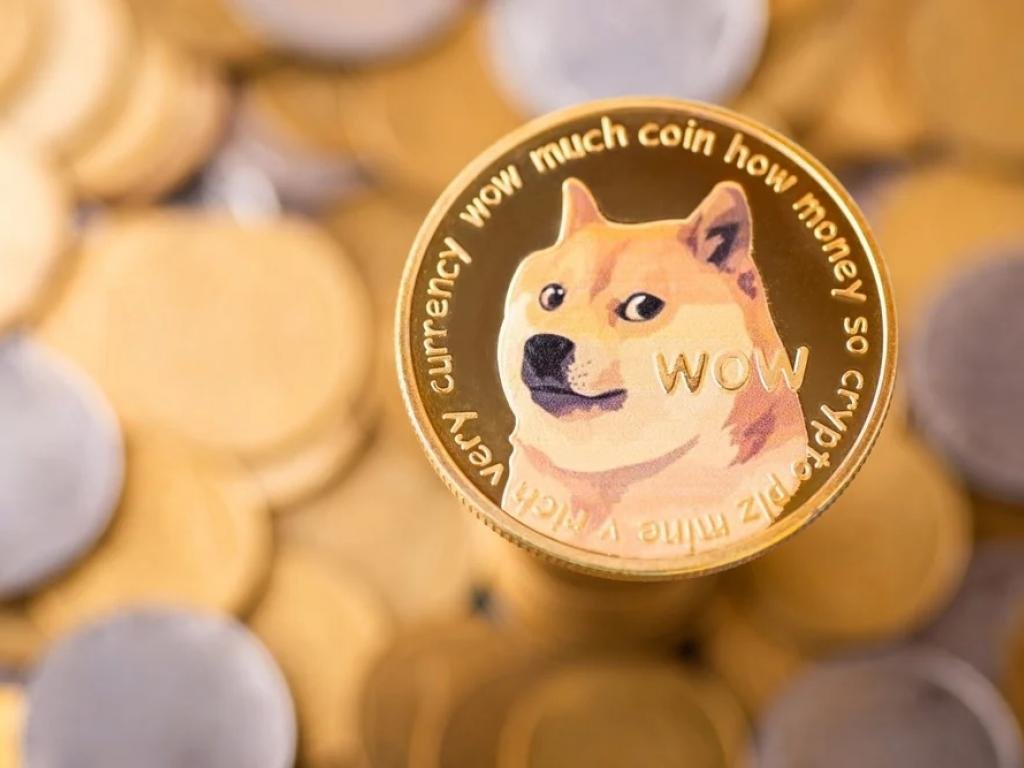GameStop, Dogwifhat And ‘Dogecoin Killers:’ How Memecoins Teach A ‘Skill To Succeed’ In Crypto

It's easy to be overwhelmed as a retail investor by the memecoin tsunami: GameStop coin here, Dogwifhat there — even a so-called "Meow" coin.
How can retail investors make sense of it all?
A tweet by crypto founder Qiao Wang provides insight.
"The Most Important Skill To Succeed In Public Crypto Markets"
Wang, formerly at market intelligence firm Messari, tweeted the following:
I’m slowly coming to terms with the idea that anticipating memes and narratives over a 3 to 18-month time horizon is the most important skill to succeed in public crypto markets
V difficult to appreciate for the idealists or former tradfi folks
— qw (@QwQiao) January 30, 2024
"Memecoins," cryptocurrencies that have no fundamental value beyond entertainment and speculation, have always featured in the industry — Dogecoin (CRYPTO: DOGE) and Shiba Inu (CRYPTO: SHIB) still command multi-billion dollar valuations.
But the extraordinary speed and success of recent examples like Bonk (CRYPTO: BONK), GameStop and a whole array of others makes those established memecoins look like child's play.
Wang's tweet highlights this: observers and participants that not only act fast but anticipate memes and narratives do well. The trader turning $5,000 into $1.8 million with Dogwifhat or another trader booking a $490,000 profit off a Vitalik Buterin tweet come to mind.
But Wang does not only refer to memes in terms of short-term memecoin gains.
Anticipating narratives over a multi-month timeframe is just as important and Wang explains how to do that in another post.
Why 'Degens' Can Be Highly Profitable
A "degen," short for degenerate, is a colloquial term for a cryptocurrency trader with an extremely high risk tolerance. "Degens" are the types of traders that pull off seven-figure success stories or losses, as this story of a six-figure liquidation shows.
Wang dedicated an entire blog called "Degens Are Pioneers" to them.
He argues they are synonymous with early adopters because crypto degens are the first to "risk their hard-earned money to ape into an unproven financial protocol." They are also the first to test a newly-launched memecoin with their own money, but also the first to find actual use cases, such as stablecoins. Those were "bootstrapped by degens," Wang says.
Degens are at the bleeding edge of trends in the cryptocurrency sector. Their extremely high risk appetite is rewarded with sumptuous wins and eye-watering losses.
But is it worth becoming a degen?
Read Also: Polymarket Traders Are Betting On Trump's Return To The White House
To Degen Or Not To Degen?
Degens are the best at "the most important skill" Wang describes — anticipating memes and narratives.
Is it then time for retail investors to join the degen army?
Even if one has the financial means and nerves of steel to withstand the extreme volatility that comes with investing in experimental cryptocurrency projects, most will not want to achieve degen status.
For one, there is a reason why a crypto native described the sector as an "unhinged casino." Many experienced industry participants know that significant profits are not made "in your first bull run."
Those who "make it," industry slang for achieving financial freedom, have to pay their dues in time, energy and often social life that is sacrificed.
Still, observing the moves and strategies of degens is worth it. Because, as "Rich Dad Poor Dad" author Robert Kiyosaki knows, buying early is key to successful crypto investing, even for Bitcoin (CRYPTO: BTC).
Read Next: Mark Cuban's Crypto 'AMA': Dallas Mavericks Say 'Yes' To DOGE, Printer 'Go Brrr,' His Crypto Holdings
Image: Shutterstock




